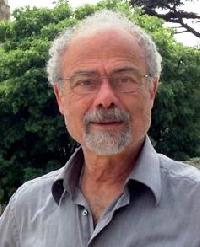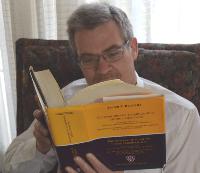| Pages in topic: [1 2] > | Medical linguist or linguistic medic - who makes the better translator? Thread poster: Fiona Grace Peterson
|
|---|
Dear colleagues,
Together with Laura Collada Ali, as study analysis of an article that is presently in preparation, I am currently conducting a survey to gather the views of medical translators on the eternal dilemma - what is it that makes a translator truly “qualified” to succeed in the medical field?
Who do you consider better qualified to translate medical texts - a doctor who has studied languages or a linguist who specialised in medical translation?
... See more Dear colleagues,
Together with Laura Collada Ali, as study analysis of an article that is presently in preparation, I am currently conducting a survey to gather the views of medical translators on the eternal dilemma - what is it that makes a translator truly “qualified” to succeed in the medical field?
Who do you consider better qualified to translate medical texts - a doctor who has studied languages or a linguist who specialised in medical translation?
We hope that with your help, we can gain a little more insight into this fascinating issue.
If you work in medical translation, we would very much appreciate if you could take a few minutes to complete the following short questionnaire, designed to gather information on your experience and background, and what you consider to be the particular difficulties associated with this type of translation.
The results will be published in a future article in the EMWA journal “Medical Writing”.
All information is anonymous and confidential.
https://www.surveymonkey.com/s/G7ZNJYF
Thank you very much in advance!
Laura C Collada Ali & Fiona Grace Peterson ▲ Collapse
| | | | Joseph Tein 
United States
Local time: 08:31
Member (2009)
Spanish to English
+ ...
| It's the wrong question | Jul 29, 2015 |
I've already answered this survey, first of all.
My main comment is that you can't judge who is a better translator by simply looking at the person's background. A doctor may have tremendous knowledge of medical terminology, procedures, anatomy, etc. but be a poor or careless writer. It really depends on the individual linguist.
| | | | | Topic of lively debate | Jul 29, 2015 |
Hi Joseph,
Thanks for your post, and for taking the time to reply to the questionnaire.
You make a valid point, however this is a topic which has generated a lot of debate over the years, and is one that still divides people. We have received a lot of responses, a fact which would seem to reflect this interest.
Many people are still of the opinion (indeed it is a common knee-jerk reaction) that a translator HAS to be a medical professional to do medical tra... See more Hi Joseph,
Thanks for your post, and for taking the time to reply to the questionnaire.
You make a valid point, however this is a topic which has generated a lot of debate over the years, and is one that still divides people. We have received a lot of responses, a fact which would seem to reflect this interest.
Many people are still of the opinion (indeed it is a common knee-jerk reaction) that a translator HAS to be a medical professional to do medical translation, yet the evidence does not necessarily support this view. We have also been contacted by another translator who has done similar research in the field; with the constant diversification and evolution of the translation industry and those who work in it, we certainly think it's an issue that deserves greater attention.
Thanks again for your interest, and to everyone who takes the time to contribute. It is very much appreciated. ▲ Collapse
| | | | | Writing first | Jul 30, 2015 |
Joseph Tein wrote:
I've already answered this survey, first of all.
It tells me I've already answered it, too, though I don't remember doing so.
I agree with Joseph: it's the writing skill that is of primary concern. I know very talented medical researchers who are unable to write clearly in their own native language. There's no way they are ever going to be first class translators.
I would say that an appreciation of language and the ability to express oneself is more important than a knowledge of the subject area, which can always be acquired later.
This raises another interesting question: if we are given a very poorly written source text, should we strive to produce an equally poorly written target text?

| | |
|
|
|
Philip Lees wrote:
It tells me I've already answered it, too, though I don't remember doing so.
Thank you! I appreciate you taking the time to do so.
Philip Lees wrote:
I would say that an appreciation of language and the ability to express oneself is more important than a knowledge of the subject area, which can always be acquired later.
I agree, however in medical translation this is true only to a certain extent; many medical texts are so demanding that they require a much greater degree of subject area knowledge before one even begins (anatomy, physiology, histiology, pathophysiology, in addition to cardiology or whatever the specific area is) - NOT having this can be very risky, as we well know, or at best leads to a text that makes no sense whatsoever. I do agree that writing is of the utmost importance - if the message to be conveyed isn't clear, then the translation serves no purpose.
Philip Lees wrote:
if we are given a very poorly written source text, should we strive to produce an equally poorly written target text?
Ah, the eternal debate... GIGO or not? While it's impossible to work miracles, I always try to produce the best text possible.
[Edited at 2015-07-30 10:25 GMT]
| | | | Samuel Murray 
Netherlands
Local time: 17:31
Member (2006)
English to Afrikaans
+ ...
| I already participated, it says | Jul 30, 2015 |
"U hebt al deelgenomen aan deze enquête", it says. Have you posted this survey previously?
| | | |
Samuel Murray wrote:
Have you posted this survey previously?
Yes. But you should know if you've already taken it... or is it an error? If you haven't already responded and it's giving you the message that you have, I can ask my colleague Laura to look into it.
Do let me know!
| | | |
In my opinion, the ideal person is someone who has been trained to get the message across, i.e. the linguist. However, medical translators must have ample knowledge of medical matters and of course excellent research skills and a generous pinch of curiosity.
(Yes, I am a linguist. If I were a doctor, I would probably think the other way around.)
[Edited at 2015-07-30 11:54 GMT]
| | |
|
|
|
Lingua 5B 
Bosnia and Herzegovina
Local time: 17:31
Member (2009)
English to Croatian
+ ...
| Depends on what part of the text you are dealing with. | Jul 30, 2015 |
Some parts require a better first-hand knowledge of medical procedures and terminology, while others may require a better writing style and a sense of non-medical reading audience. We can all learn from each other, hopefully.
I work in medical field, I am a linguist, and never have I found an excerpt that was not understandable or at least researchable.
| | | | | Being a doctor is not incompatible... | Jul 30, 2015 |
... with good writing and lingustic skills. I know a few of them.
[Edited at 2015-07-30 17:17 GMT]
| | | | DLyons 
Ireland
Local time: 16:31
Spanish to English
+ ...
| I don't see the point. | Jul 31, 2015 |
Fiona Peterson wrote:
... the evidence does not necessarily support this view...
So why not survey the evidence?
What will surveying the views of self-selecting interested parties tell you?
| | | |
We've been asking the same question for many years in legal translation. I believe that dually qualified people are the answer — even more so in medical translation.
But this would be incompatible with the current structure of the translation industry, which demands a cheap process and cheap, low-profile translators.
Hence, you can have neither of the following:
1. Properly dually qualified people, as such a well educated person would simply not fit the m... See more We've been asking the same question for many years in legal translation. I believe that dually qualified people are the answer — even more so in medical translation.
But this would be incompatible with the current structure of the translation industry, which demands a cheap process and cheap, low-profile translators.
Hence, you can have neither of the following:
1. Properly dually qualified people, as such a well educated person would simply not fit the mould. Too much pay, too much status for agencies to stomach. Not the kind of person you can just tell to keep the formatting intact (or please correct it), explain X-Bench reports in detail, accept net 60 payment deadlines, comply with the client's error-ridden glosary at all costs, worship the reviewer and take his every word for truth revealed, grant 50% discounts for a bunch of typos and otherwise to live to please.
2. A collaborative process, rather than taking turns in an adversarial system. The industry is too small-minded to rise above this model. But if it weren't, doctors and linguists could be working on the same texts together, as allies and teammates, not as adversaries, controllers and discount seekers. Where a controller is in fact necessary, it should be another person or two — with the right qualifications and/or knowing their limitations, therefore not just a monolingual doctor having the last word after a single pass without asking any questions. It would also cost much more in wages or fees, much more than the comfortable 6 cents for a translator and 12 for an agency that almost everybody loves to be paying, while believing the translator to be a genius and an idiot, genius enough to 'deliver perfection' single-handedly, idiot enough to do it for that kind of pay.
***
It would still be cheaper and more secure, more final than what some people may understand legal translation to mean. The latter should involve a panel of subject-matter experts on whatever the text concerns (e.g. engineers, doctors etc., depending on the industry) and lawyers from all of the jurisdictions involved, each of them linguistically adept and still assisted by interpreters and translators. At which point it would make more sense to just draft a corresponding version in the other language than simply translate. ▲ Collapse
| | |
|
|
|
| Definitely worth considering | Aug 1, 2015 |
Łukasz Gos-Furmankiewicz wrote:
...
... it would make more sense to just draft a corresponding version in the other language than simply translate.
I definitely wondered about this when proofreading a text the other day - it was basic first aid, more to follow, for ship's personnel.
There is simply so much already available, and the translator was a linguist, not terribly familiar with the terminology, although her work in other fields is excellent. By the time I had inserted the standard terminology, one or two passsages were barely recognisable as translations of the source.
This can apply at all levels of medical translation.
I think it depends very much on the individual, whether a medic or a linguist will produce the best translation, and there is no hard-and-fast rule.
The translator must be enough of a linguist to know that you have to translate whole phrases and concepts as well as the words. This calls for training as a linguist, at least in what one professor I studied with called PRAGMATICS. But also enough of a medic to know the terminology and the whole jargon and idiom of the specialist language used, in both languages.
The medical Latin used in the Danish health services is really a foreign language to many Danes, and medical professionals have to learn it along with the rest of their training.
To some extent you need to be both a medic and a linguist to practise medicine, and as a lot of the professional literature is published in English, and only later, if ever, in Danish, there are apparently strong arguments for using medics as translators.
Mutatis mutandi, there will be similar situations in many countries.
However, understanding the language and the procedures in the source language is only half the process of translation. You still have to be able to express the information in the target language.
This is where the division comes. It is perfectly possible to be a brilliant surgeon, or any other kind of medic for that matter, without being good at expressing yourself in more than one language.
Conversely, a linguist can learn the concepts of medicine without necessarily needing hands-on experience. There are certainly people who can do both, but there will be far more who are predominantly skilled at one or the other - as either medics or linguists. It is not necessary to have a degree in languages to translate, but it is necessary to be qualified and authorised to practice medicine.
Nevertheless, it is not the exams and the certificates in themselves that make a skilled practitioner. It is the understanding and training that precedes them. A linguist can study medicine without actually qualifying to practice in the health services, just as some medics CAN make excellent translators if they know enough about the specialised language, even without formal qualifications in linguistics.
Łukasz Gos-Furmankiewicz is absolutely right that the ideal situation is a team of medics and linguists working together.
The volumes of material needing translation are too great and life is too short for everyone to take double qualifications, but there is a great overlap in the skills required.
A translation must be done by a linguist, whether or not that linguist is also qualified as a medic, just as surgery must be carried out by a surgeon, regardless of whether he/she is capable of translating as well.
I tend to place my bets on the linguist who has studied medicine (because that is where I come in...).
But not just any linguist, and there are whole fields of medicine I do not mess with because I know I am not qualified enough.
There are certainly a lot of highly skilled medics about who don't or shouldn't mess with translation.
| | | | jyuan_us 
United States
Local time: 11:31
Member (2005)
English to Chinese
+ ...
| Your point is seconded. | Aug 28, 2015 |
Philip Lees wrote:
I know very talented medical researchers who are unable to write clearly in their own native language.
This is very common. As someone native in Chinese, I saw a lot of medical research articles published in China poorly written. I worked with some doctors and lawyers native in English who wrote poorly in English.
| | | | Reed James
Chile
Local time: 11:31
Member (2005)
Spanish to English
| From an economic standpoint… | Sep 1, 2015 |
The question I would ask is not which professional would be most qualified to do the job but rather which profession would yield the highest wages. I'm sure I'm generalizing, but it seems to me that a physician could earn a better salary practicing medicine then translating. On the other hand, a medical translator who is not a physician does not have that option. Therefore, it would make more sense for the latter to specialize in medical translation.
| | | | | Pages in topic: [1 2] > | To report site rules violations or get help, contact a site moderator: You can also contact site staff by submitting a support request » Medical linguist or linguistic medic - who makes the better translator? | Anycount & Translation Office 3000 | Translation Office 3000
Translation Office 3000 is an advanced accounting tool for freelance translators and small agencies. TO3000 easily and seamlessly integrates with the business life of professional freelance translators.
More info » |
| | Trados Business Manager Lite | Create customer quotes and invoices from within Trados Studio
Trados Business Manager Lite helps to simplify and speed up some of the daily tasks, such as invoicing and reporting, associated with running your freelance translation business.
More info » |
|
| | | | X Sign in to your ProZ.com account... | | | | | |















